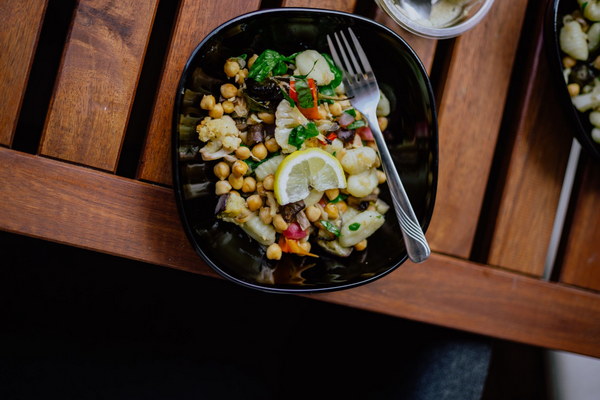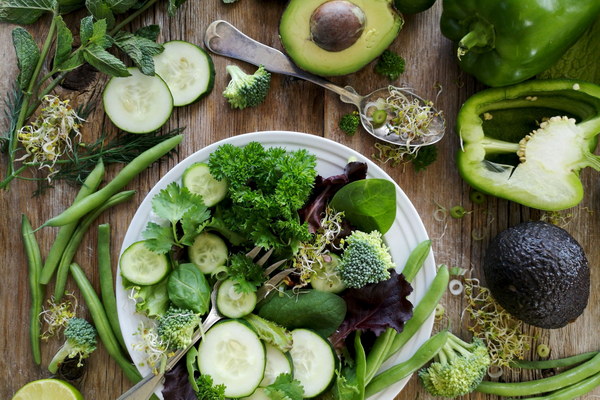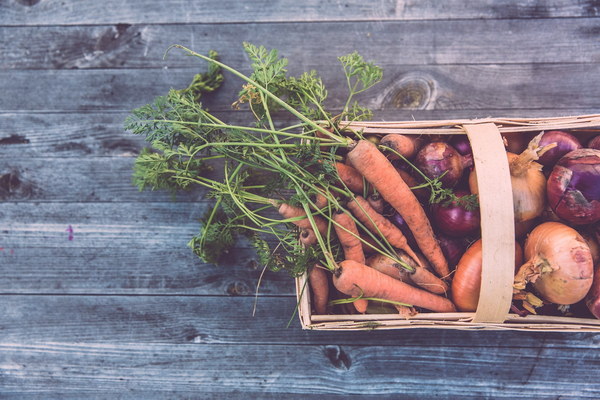Top Vegetables for Nourishing the Spleen in Autumn and Winter
Autumn and winter are the seasons when the body tends to accumulate dampness and coldness, leading to various digestive issues. To maintain a healthy spleen and improve overall well-being, incorporating the right vegetables into your diet can make a significant difference. In this article, we will discuss the top vegetables that are best for nourishing the spleen during the autumn and winter months.
1. Sweet Potatoes
Sweet potatoes are a staple in many Asian diets and are considered a warming food. They are rich in beta-carotene, vitamins A and C, and dietary fiber, all of which help to strengthen the spleen and improve digestion. Moreover, sweet potatoes are easy to digest and can be consumed in various forms, from roasted to mashed.
2. Carrots
Carrots are another excellent vegetable for nourishing the spleen. They are high in beta-carotene, vitamin A, and fiber, which aid in enhancing the spleen's function and supporting the immune system. Carrots can be consumed raw, cooked, or juiced, making them versatile and easy to incorporate into your diet.
3. Bok Choy
Bok choy, also known as Chinese cabbage, is a leafy green vegetable that is rich in vitamins A, C, and K, as well as calcium and iron. This vegetable is believed to help strengthen the spleen and improve blood circulation. Bok choy can be stir-fried, steamed, or added to soups, making it a nutritious choice for autumn and winter meals.
4. Pumpkin
Pumpkin is not only a festive vegetable during the autumn season but also an excellent choice for nourishing the spleen. It is rich in beta-carotene, vitamin A, and fiber, which support the spleen and enhance digestion. Pumpkin can be used in soups, stews, or as a side dish, and its sweet, nutty flavor complements many other ingredients.
5. Mushrooms
Mushrooms are a versatile and nutritious vegetable that can be beneficial for the spleen. They contain vitamin D, selenium, and polysaccharides, which have been shown to support immune function and improve digestion. Mushrooms can be sautéed, roasted, or added to soups and stews to provide a unique flavor and health benefits.
6. Soybeans

Soybeans are a staple in many Asian diets and are known for their health benefits. They are rich in protein, fiber, and isoflavones, which can help to strengthen the spleen and improve digestion. Soybeans can be consumed in various forms, such as tofu, tempeh, or edamame, and are an excellent source of plant-based nutrition.
7. Ginger
Ginger is a versatile spice that has been used for centuries in traditional medicine to aid digestion and support the spleen. It contains gingerol, a compound that has anti-inflammatory and anti-microbial properties. Adding ginger to soups, teas, or stir-fries can help to improve digestion and boost your immune system during the cooler months.
In conclusion, incorporating these vegetables into your autumn and winter diet can help to nourish your spleen and support overall health. Remember to consume a balanced diet and stay hydrated to ensure that your body remains in optimal condition during the colder months. Enjoy these delicious and healthy vegetables and feel the benefits of a strengthened spleen and improved digestion.









